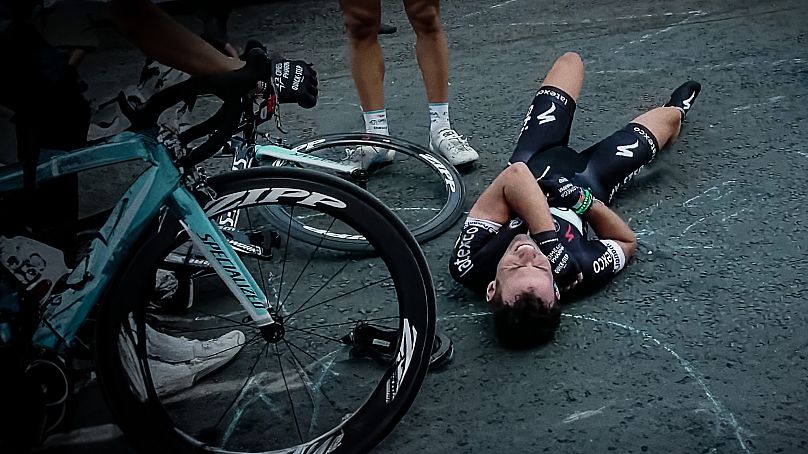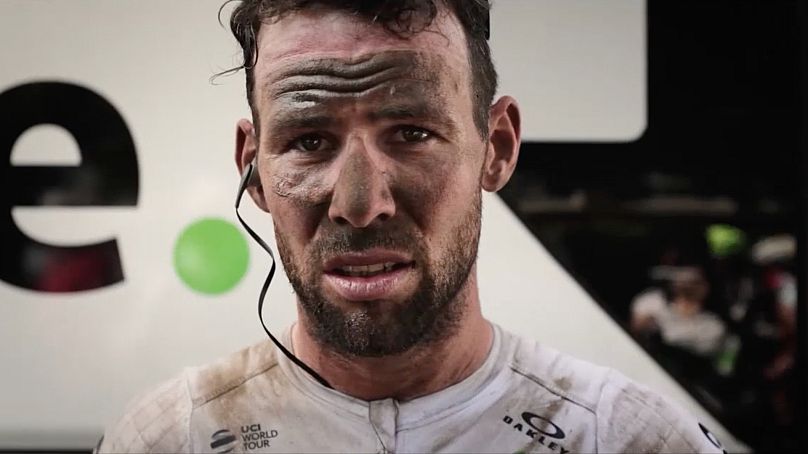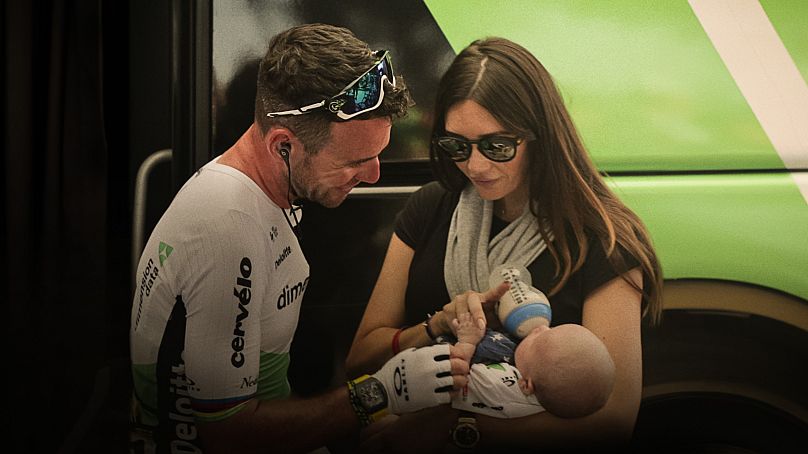A brand new documentary on Mark Cavendish, one of the greatest sprint cyclists in history, delves into the athlete’s years of depression between Tour de France stage wins.
The start of Alex Kiehl’s new Netflix documentary Mark Cavendish: Never Enough takes viewers right to the peak of the cyclist’s career.
Between 2008 and 2016, he won 30 stages of the Tour de France, an incredible number that put him in sniffing distance of Eddie Merckx, the most successful rider in the history of the Tour.
In those years, Cavendish earned the nickname the Manx Missile. One of the greatest sprinters of all time, Cavendish had a bullish attitude that often put him at odds with the press. Uncompromising candour with press aside, his results couldn’t be argued with.
Showing no signs of slowing down, it looked like him beating Merckx’s 1975 record of 34 stage wins was an inevitability.
If only life could be so simple. In the 2017 Tour de France, Cavendish was forced into the barriers at 70 kmph by reigning World Champion Peter Sagan. Cavendish’s disappointment was added to with a diagnosis of Epstein–Barr virus, a common issue for endurance athletes that can turn into chronic fatigue if not treated effectively. As Cavendish prepared for a comeback at the next year’s Tour, it became clear the virus was affecting him deeply.
Any hopes for a full return were then scattered when he crashed dramatically into a bollard at the Milan–San Remo race in 2018. His injuries, coupled with his increasing fatigue, saw him finish outside the time limit at that year’s Tour de France.
The next year, he was dropped by his team.
“You don’t go from being the best in the world, to really not even capable of…” Cavendish muses in the documentary. “How? How? How has it happened?”
Mental health and sport
While that may be Cavendish’s question, the one director Kiehl is asking is far bigger. What happens to the mental health of a man whose only ever valued success when he can no longer achieve it?
Kiehl digs into Cavendish’s psyche as he falls into a deep depression over a winless four-year period.
“What really drew me to this story was what happens when your identity, the thing that you've worked at, breaks down,” Kiehl explains. The next thing was the candour that Cavendish and those around him treated him with. As they filmed, the pair built up a trust to plum the depths of the cyclist’s growing depression.
As the film goes on, granting access into Cavendish’s life behind closed doors, his inability to win turns him insular. He starts creating a rift between himself and his wife Peta Todd. Friends in the doc start getting concerned that he might even take his own life.
“Mark is an incredibly interesting person,” Kiehl says. On the one hand, he’s a logical operator, able to extract superhuman performances from his body to great success. “But he's also an incredibly emotional person which I found quite unusual.”
Unlike most sports stars who remain laconic through the ups and downs, Cavendish frequently shows his emotion. It’s visceral when he breaks down crying after an attempted return race in 2020, suggesting it could be “the last race” of his career.
The road to recovery
Peta is the key to the whole documentary. As Cavendish falls into the depths of his despair, she candidly discusses the strain on their marriage.
Eventually, lockdown brings a reprieve to the couple, letting Cavendish spend time away from the limelight, his family comes into focus again after years with blurred vision. It’s only then that Cavendish starts gaining control over his life.
Reflecting on getting to know a top-level athlete who’s suffered from depression over performance, Kiehl finds he could relate to how Cavendish’s relentless pursuits got in the way of his ability to care for himself.
“Mark is always always always pushing himself and he’s very critical. I can certainly relate to aspects of that,” Kiehl says. Seeing how he learned to manage that and become “more gentle with himself” was an inspiring lesson for the director.
As anyone who follows cycling will know, Cavendish did manage to return to the sport. In 2021, after four winless years, he chalked up four more stage wins at the Tour de France, putting him even with Menckx’s record.
Yet even with the final note of success, Kiehl’s documentary is always keenly aware that the highs of winning will only take you so far from the daily realities of mental ill-health.
After his final win of 2021, the camera lingers on Cavendish as he stares into the distance. “It just sums up so much about Mark. This constant pressure and desire. Can it ever be satisfied?”
This year, Cavendish crashed out again at the Tour de France, potentially ending his career. There’s a chance he may return, but this time it looks like it might be over for good. Kiehl spoke to him a few days after the crash.
“He was very disappointed,” he says. “But, he’s also really upbeat and positive.”
Mark Cavendish: Never Enough will be released on Netflix on 2 August.














